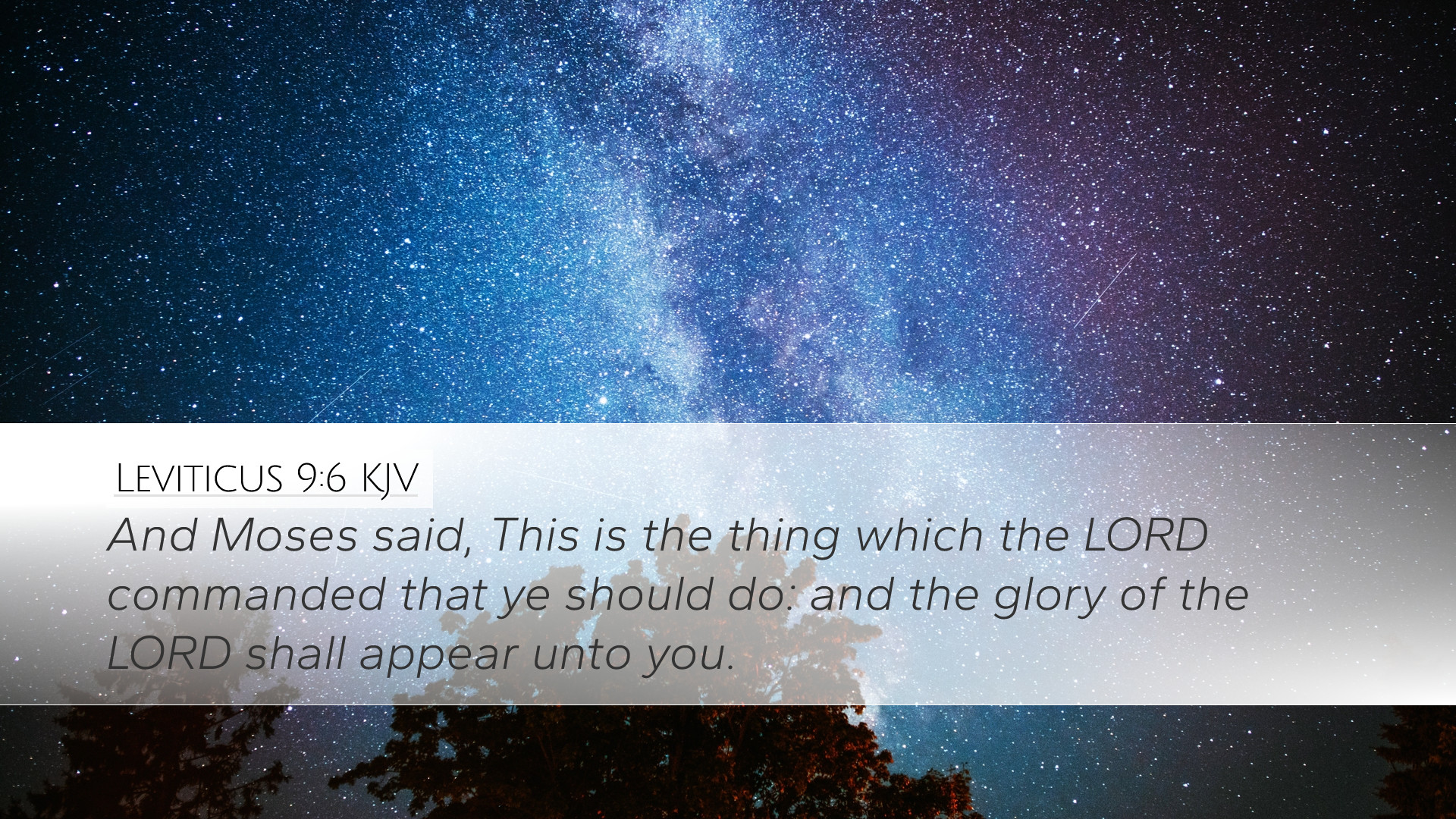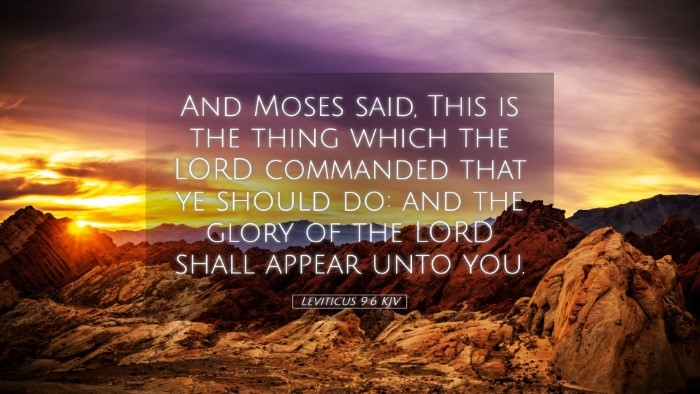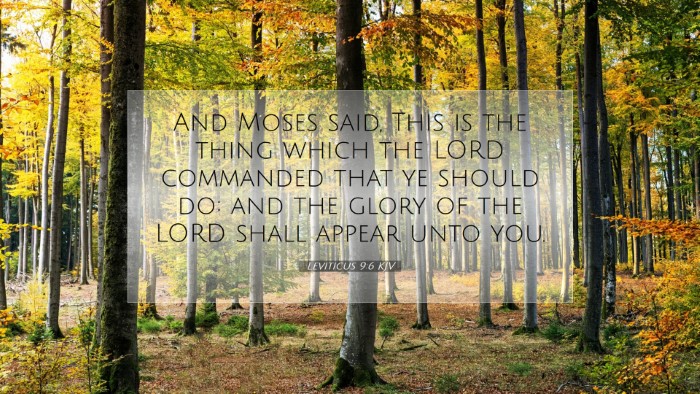Commentary on Leviticus 9:6
Leviticus 9:6 states:
"And Moses said, This is the thing which the Lord commanded that ye should do: and the glory of the Lord shall appear unto you."
Overview and Context
This passage is situated within the inauguration of the Levitical priesthood and the establishment of sacrificial worship, forming a critical moment in Israel's national and spiritual identity. Here, Moses acts as the mediator between God and the Israelites, underscoring the importance of obedience to divine commandments.
Significance of Divine Command
-
Moses as Mediator:
Moses' pronouncement establishes his role not only as a leader but as a high priestly figure who conveys God's instructions to the people. This reflects the larger biblical theme where God uses human instruments to convey His will (cf. Exodus 19:9).
-
The Importance of Obedience:
The imperative nature of Moses' command emphasizes obedience as a prerequisite for divine manifestation. This principle is foundational throughout Scripture, asserting that divine glory often coincides with human response to God's directives (cf. Deuteronomy 28:1-2).
-
Expectation of Divine Glory:
The assurance that "the glory of the Lord shall appear unto you" is rich with theological implications, suggesting that the manifestation of God's glory is contingent upon the faithful observance of His commands. This ties into the broader narrative of God’s presence among His people.
Insights from Commentaries
Matthew Henry's Commentary
Matthew Henry emphasizes the necessity of following God's directives meticulously. He suggests that Moses’ instructions indicate a systematic approach to worship, highlighting that true worship must align with God’s ordination. Henry notes that the expected appearance of God's glory is both a promise and a warning, heralding that disobedience could lead to divine absence rather than presence.
Albert Barnes' Notes on the Bible
Albert Barnes underscores the context of this incident, relating it to the previous chapters detailing the establishment of the sacrificial system. He points out that this verse not only calls for the actions of the priests but also denotes a communal aspect where the entire congregation is to witness God's glory. Barnes links this moment to the broader narrative of redemption and covenant, illustrating God’s continual desire to dwell among His people.
Adam Clarke's Commentary
Adam Clarke provides an in-depth linguistic analysis, examining the Hebrew terms used for "thing" and "commanded." He illustrates the weight of divine instruction and its implications for Israel’s covenant relationship with God. Clarke further elaborates on the expectation of God’s glory, connecting it to the historical presence of God in the tabernacle and preceding encounters with Moses, underscoring the theme of God’s holiness.
Theological Implications
-
Covenant Relationship:
This verse reinforces the nature of God's covenant with Israel. Adherence to His commands leads to the promise of His presence, highlighting the reciprocal relationship between God and His people.
-
Worship and Holiness:
Worship, as mandated in this chapter, is not merely ritualistic but intrinsically linked to holiness. The glory of God is associated with His holiness, and thus, the expectation of divine glory serves as a reminder to approach worship with reverence.
-
Christological Foreshadowing:
Many theologians see in this text a foreshadowing of Christ, the ultimate mediator whose obedience leads to the manifestation of God's glory in the New Testament (John 1:14). The sacrificial system prefigures Christ’s sacrifice and the glory displayed in His resurrection.
Conclusion
Leviticus 9:6 encapsulates a pivotal moment in Israelite worship, representing the intersection of divine command, human response, and the manifestation of God's glory. It calls pastors, students, and theologians to reflect on the nature of worship in the light of obedience and the importance of striving toward holiness in communal and personal worship practices. As Moses beckoned the Israelites to follow God's instructions, so too are we invited to align our lives to His commands, awaiting the full revelation of His glory.


